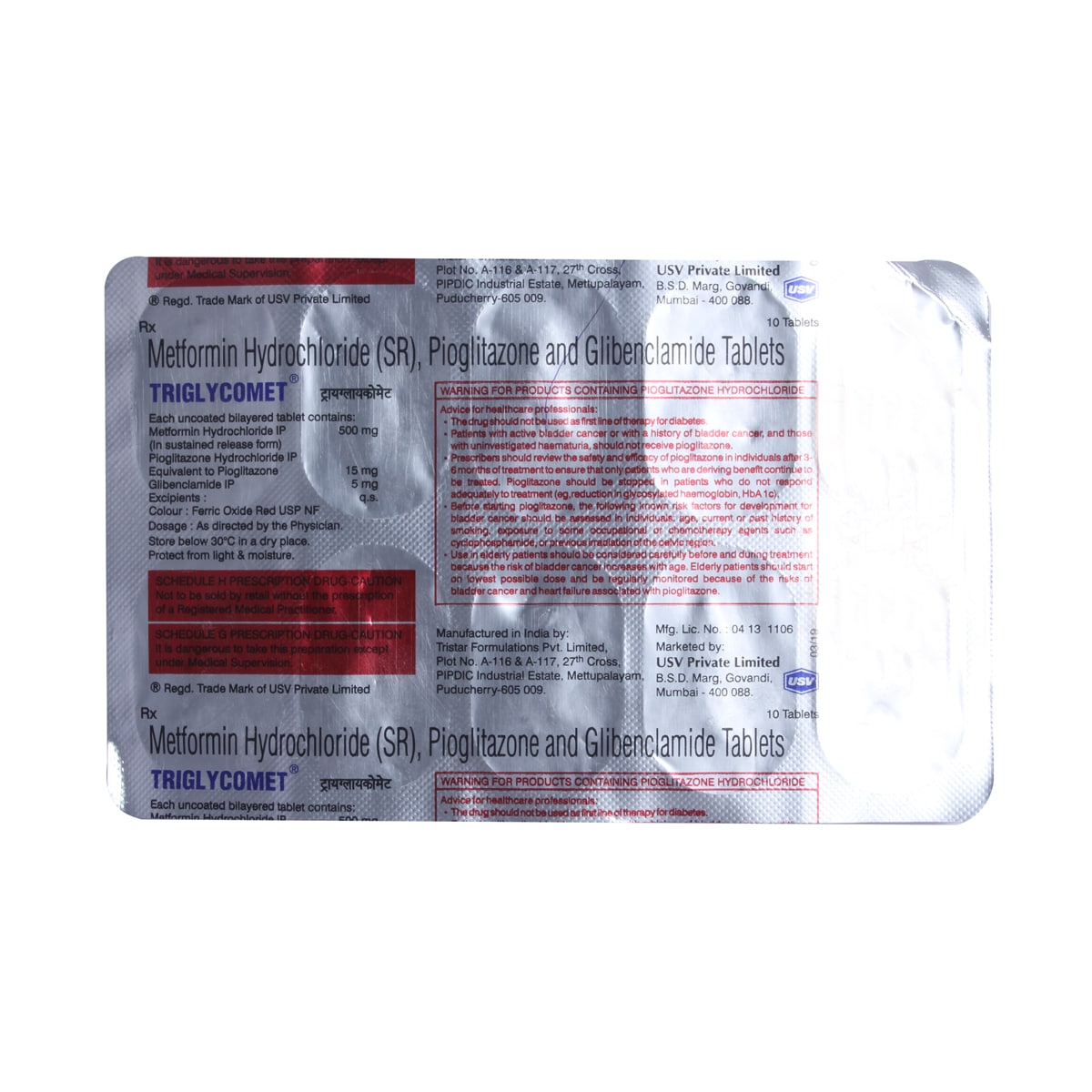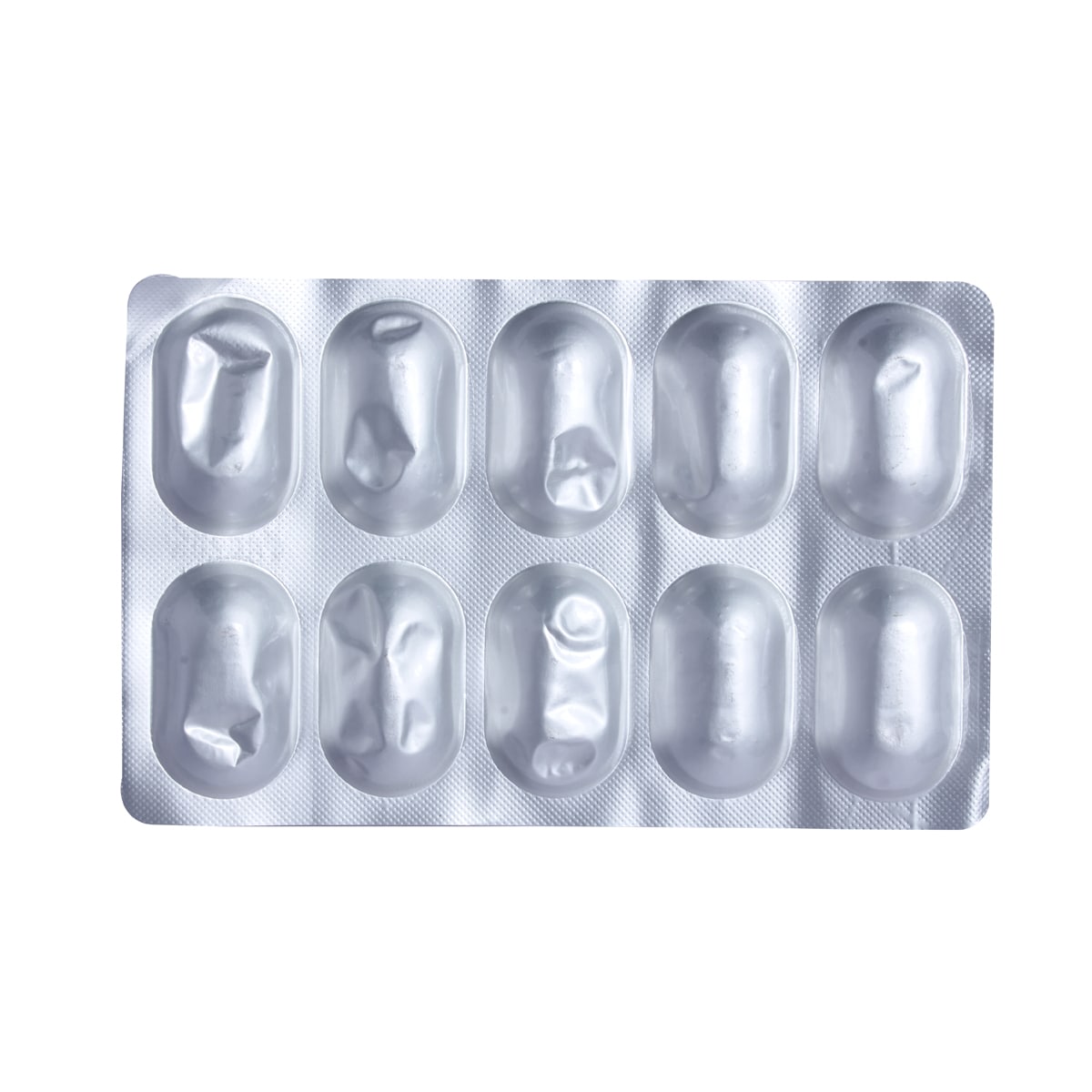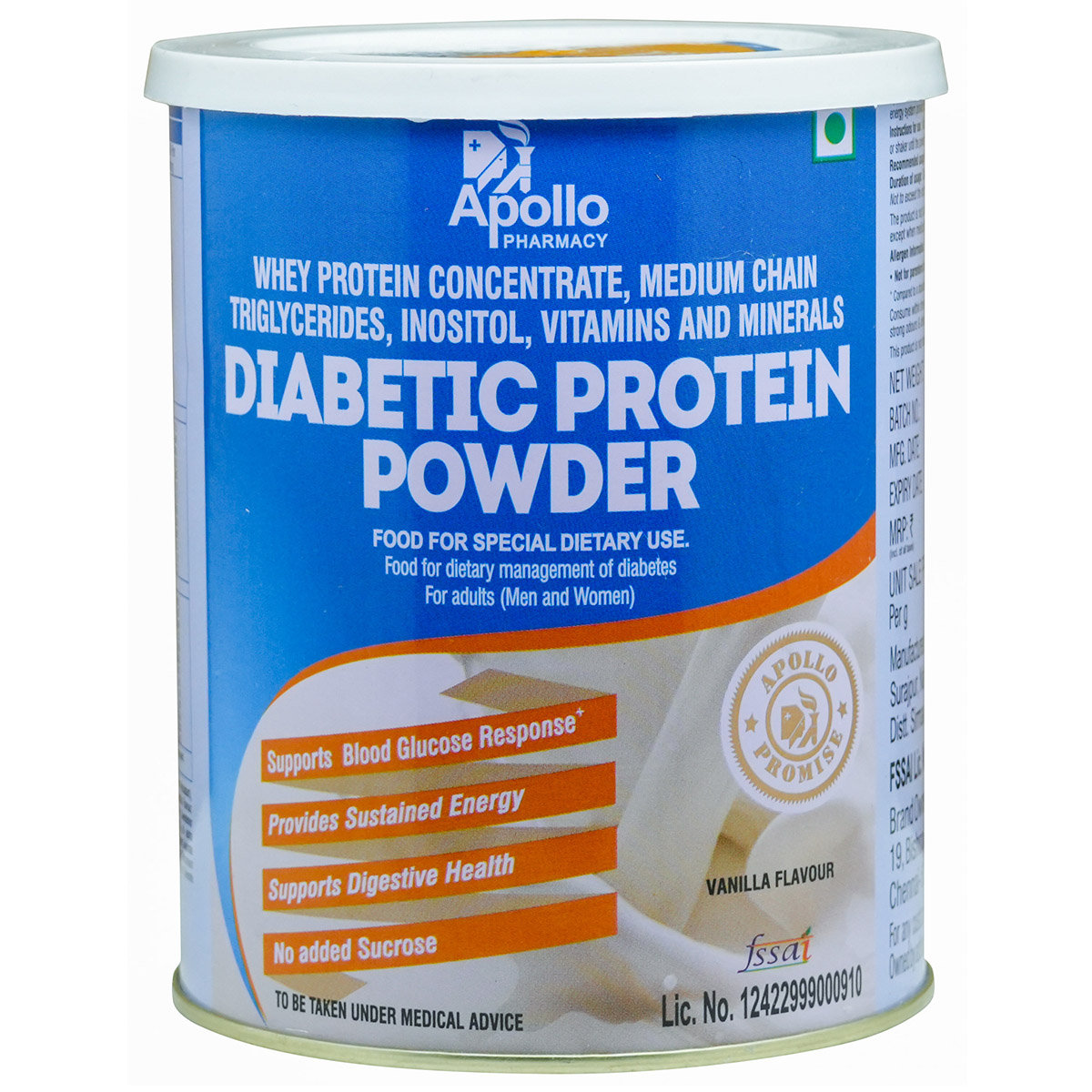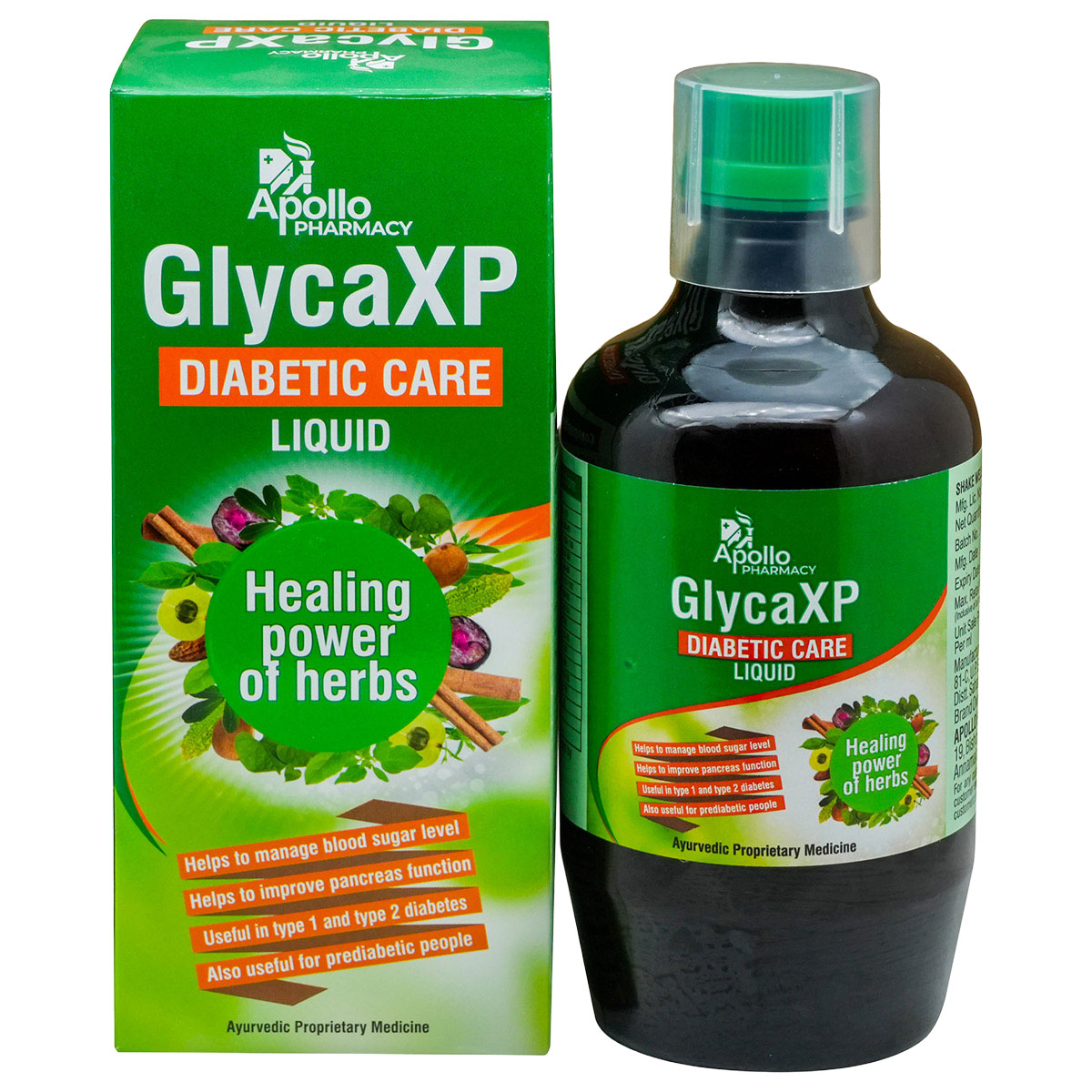Triglycomet Tablet 10's
MRP ₹107
(Inclusive of all Taxes)
₹16.1 Cashback (15%)
Know Your Delivery Time
Provide Delivery Location

Secure Payment

India's Most Trusted Pharmacy

Genuine Products
Manufacturer/Marketer :
Consume Type :
Return Policy :
Expires on or after :
About Triglycomet Tablet
Triglycomet Tablet is used to treat type 2 diabetes mellitus. Type 2 diabetes mellitus is a chronic or life-long condition in which blood sugar or glucose levels are more than normal. It occurs when the body does not produce enough insulin, or if produced, it cannot function properly in the body.
Triglycomet Tablet contains Glibenclamide, Metformin, and Pioglitazone, which increase insulin production by acting on the pancreas, lower liver glucose production and intestinal glucose uptake, and improve the sensitivity of tissues (muscles and fats) to insulin.
You may experience side effects such as nausea, vomiting, diarrhoea, stomach ache, respiratory infection, weight gain, numbness, and vision problems. If any of the side effects persist or worsen, consult your doctor.
Do not take Triglycomet Tablet if you are allergic to any of its contents. Before taking Triglycomet Tablet , inform your doctor if you are taking any other medicines, including prescription or non-prescription medicines. Consult your doctor if you are pregnant, planning to become pregnant, or breastfeeding.
Uses of Triglycomet Tablet
Triglycomet Tablet is used in the treatment of type 2 diabetes mellitus. The detailed uses of Triglycomet Tablet are as follows:
- Controls high blood sugar: Triglycomet Tablet lowers blood glucose by stimulating insulin release, improving insulin sensitivity, and reducing sugar production in the liver.
- Improves insulin action: Triglycomet Tablet enhances the body’s response to insulin, helping cells absorb and use glucose more effectively.
- Prevents diabetes-related complications: By maintaining stable blood sugar levels, Triglycomet Tablet helps to reduce the risk of nerve damage, kidney problems, vision issues, and heart disease.

Have a query?
Directions for Use
- Triglycomet Tablet is taken with food to prevent hypoglycemia or as advised by your doctor.
- Follow your doctor's instructions on the dosage and timing of this medication to ensure safety.
- Swallow Triglycomet Tablet as a whole with a glass of water.
- Do not chew, crush, or break it.
Medicinal Benefits
- Triglycomet Tablet is used to manage type 2 diabetes mellitus by effectively controlling high blood sugar levels.
- Glibenclamide helps increase insulin production from the pancreas.
- Metformin reduces glucose production in the liver and decreases glucose absorption from the intestine.
- Pioglitazone enhances insulin sensitivity in muscle and fat tissues, helping the body utilise glucose more efficiently.
- The combination provides better glycaemic control than using a single antidiabetic medicine alone.
- It helps reduce post-meal and fasting blood glucose levels, supporting overall metabolic balance.
- When combined with a proper diet and regular exercise, Triglycomet Tablet lowers the risk of diabetes-related complications such as nerve damage, kidney problems, and heart disease.
- It promotes stable energy levels and improved overall glucose metabolism.
How Triglycomet Tablet Works
Storage
- Inform Your Doctor: Notify your doctor immediately about your diarrhoea symptoms. This allows them to adjust your medication or provide guidance on managing side effects.
- Stay Hydrated: Drink plenty of fluids to replace lost water and electrolytes. Choose water, clear broth, and electrolyte-rich drinks. Avoid carbonated or caffeinated beverages to effectively rehydrate your body.
- Follow a Bland Diet: Eat easy-to-digest foods to help firm up your stool and settle your stomach. Try incorporating bananas, rice, applesauce, toast, plain crackers, and boiled vegetables into your diet.
- Avoid Trigger Foods: Steer clear of foods that can worsen diarrhoea, such as spicy, fatty, or greasy foods, high-fibre foods, and dairy products (especially if you're lactose intolerant).
- Practice Good Hygiene: Maintain good hygiene to prevent the spread of infection. To stay healthy, wash your hands frequently, clean and disinfect surfaces regularly, and avoid exchanging personal belongings with others.
- Take Anti-Diarrheal Medications: If your doctor advises, anti-diarrheal medications such as loperamide might help manage diarrhoea symptoms. Always follow your doctor's directions.
- Keep track of your diarrhoea symptoms. If they don't get better or worse or are accompanied by severe stomach pain, blood, or dehydration signs (like extreme thirst or dark urine), seek medical help.
- Inform your doctor about the nausea and discuss possible alternatives to the medication or adjustments to the dosage.
- Divide your daily food intake into smaller, more frequent meals to reduce nausea.
- Opt for bland, easily digestible foods like crackers, toast, plain rice, bananas, and applesauce.
- Avoid certain foods that can trigger nausea, such as fatty, greasy, spicy, and smelly foods.
- Drink plenty of fluids, such as water, clear broth, or electrolyte-rich beverages like coconut water or sports drinks.
- Use ginger (tea, ale, or candies) to help relieve nausea.
- Get adequate rest and also avoid strenuous activities that can worsen nausea.
- Talk to your doctor about taking anti-nausea medication if your nausea is severe.
- Record when your nausea occurs, what triggers it, and what provides relief to help you identify patterns and manage your symptoms more effectively.
- Preventing Vomiting (Before it Happens)
- Take medication exactly as prescribed by your doctor. This can help minimize side effects, including vomiting.
- Having a small meal before taking your medication can help reduce nausea and vomiting.
- Talk to your doctor about taking anti-nausea medication along with your prescribed medication.
- Managing Vomiting (If it Happens)
- Try taking ginger in the form of tea, ale, or candy to help alleviate nausea and vomiting.
- What to Do if Vomiting Persists
- Consult your doctor if vomiting continues or worsens, consult the doctor for guidance on adjusting your medication or additional treatment.
- Tell your doctor about your GAS symptoms. They may change your medication regimen or prescribe additional drugs to help you manage them.
- To manage GAS symptoms, eat a balanced diet of fibre, vegetables, and fruits.
- Drink enough water throughout the day to avoid constipation and treat GAS symptoms.
- Regular exercise like yoga and walking may help stimulate digestion and alleviate GAS symptoms.
- Take probiotics only if your doctor advises, as they may help alleviate GAS symptoms by promoting gut health.
- Take medication for GAS symptoms only if your doctor advises, as certain medications can interact with your existing prescriptions or worsen symptoms.
- If symptoms persist, worsen, or are accompanied by severe abdominal pain, vomiting, or bleeding, seek immediate medical attention.
- If you experience low blood sugar levels, inform your doctor. They will assess the severity and make recommendations for the next actions.
- Your doctor will assess your symptoms, blood sugar levels, and overall health before recommending the best course of action, which may include treatment, lifestyle modifications, or prescription adjustments.
- Follow your doctor's instructions carefully to manage the episode and adjust your treatment plan.
- Make medication adjustments as recommended by your doctor to prevent future episodes.
- Implement diet and lifestyle modifications as your doctor advises to manage low blood sugar levels.
- Monitor your blood sugar levels closely for patterns and changes.
- Track your progress by recording your blood sugar levels, food intake, and physical activity.
- Seek further guidance from your doctor if symptoms persist or worsen so that your treatment plan can be revised.
- Eat fiber-rich foods, fruits, and vegetables, and track your food intake to monitor calorie consumption.
- Limit takeout and restaurant meals, and weigh yourself weekly to stay motivated.
- Build balanced meals, allow yourself to enjoy treats in moderation, and prioritize sleep and stress management through exercise and relaxation techniques.
What if I have taken an overdose of Triglycomet Tablet
Drug Warnings
- Do not take Triglycomet Tablet if you are allergic to any of its components.
- Inform your doctor if you have heart/liver/kidney problems, oedema (fluid build-up), diabetic ketoacidosis, bladder cancer or vitamin B12 deficiency.
- Triglycomet Tablet may cause ‘lactic acidosis’ (buildup of lactic acid in the blood), characterised by abdominal pain, muscle cramps, vomiting, severe fatigue, and difficulty breathing. Seek immediate medical attention if you notice any of these symptoms.
- Consult your doctor if you are pregnant or breastfeeding.
- Triglycomet Tablet is not recommended for use in children below 18 years of age.
- Let your doctor know if you are taking any other medicines, including supplements or herbal products.
Drug-Drug Interactions
Drug-Drug Interactions
Login/Sign Up
Co-administration of Triglycomet Tablet and Iocetamic acid can increase the risk of lactic acidosis (when the body produces too much lactic acid).
How to manage the interaction:
Taking Triglycomet Tablet with Iocetamic acid is generally avoided as it can result in an interaction, please consult your doctor before taking it.
Co-administration of Iofendylate with Triglycomet Tablet can increase the risk of side effects.
How to manage the interaction:
Taking Triglycomet Tablet with Iofendylate is generally avoided as it can result in an interaction, please consult your doctor before taking it.
Co-administration of Triglycomet Tablet and Iobitridol can increase the risk of lactic acidosis (when the body produces too much lactic acid).
How to manage the interaction:
Taking Triglycomet Tablet with Iobitridol is generally avoided as it can result in an interaction. Please consult your doctor before taking it.
Co-administration of Iodixanol with Triglycomet Tablet can increase the risk of side effects.
How to manage the interaction:
Taking Triglycomet Tablet with Iodixanol is not recommended, please consult a doctor before taking it. Do not discontinue the medications without consulting a doctor.
Co-administration of Iopydol with Triglycomet Tablet can increase the risk of side effects.
How to manage the interaction:
Taking Triglycomet Tablet with Iopydol is not recommended, please consult your doctor before taking it.
Co-administration of Triglycomet Tablet and Iobenzamic acid can increase the risk of lactic acidosis (when the body produces too much lactic acid).
How to manage the interaction:
Taking Triglycomet Tablet with Iobenzamic acid is generally avoided as it can result in an interaction, please consult your doctor before taking it.
Co-administration of Iotroxic acid with Triglycomet Tablet can increase the risk of side effects.
How to manage the interaction:
Taking Triglycomet Tablet with Iotroxic acid is not recommended, please consult your doctor before taking it.
Co-administration of Iopamidol with Triglycomet Tablet can increase the risk of side effects.
How to manage the interaction:
Taking Triglycomet Tablet with Iopamidol is not recommended, please consult a doctor before taking it. Do not discontinue the medications without consulting a doctor.
Co-administration of Iopromide with Triglycomet Tablet can increase the risk of lactic acidosis.
How to manage the interaction:
Taking Iopromide with Triglycomet Tablet is not recommended, please consult a doctor before taking it. Do not discontinue the medication without consulting a doctor.
Co-administration of Iomeprol with Triglycomet Tablet can increase the risk of side effects.
How to manage the interaction:
Taking Triglycomet Tablet with Iomeprol is not recommended, please consult a doctor before taking it. Do not discontinue the medications without consulting a doctor.
Drug-Food Interactions
Drug-Food Interactions
Login/Sign Up
Diet & Lifestyle Advise
- Fill your half plate with starchy veggies, a quarter with proteins, and a quarter with whole grains.
- Eat at regular intervals. Do not take a long gap between a meal or snack.
- Monitor your blood sugar level regularly, especially when there are a lot of fluctuations.
- Invest at least 150 minutes of moderate-intensity physical activity and 15 minutes of high-intensity exercise every week.
- Lose weight gradually to achieve a healthy body mass index (18.5 to 24.9).
- Replace refined carbohydrate-containing foods with whole grain foods and increase intake of fruits and veggies and other fibre-enriched foods.
- Reduce intake of saturated fat (or hidden fats) in food like chips, crisps, pastries, biscuits, and samosas. Choose omega-3 fatty acid-containing oils for daily cooking. For frying, you may use palm oil, mustard oil, groundnut oil, rice bran oil, and safflower oil.
- Do not take stress as it may elevate your blood sugar level. You may adopt stress management techniques like mindfulness, yoga, or meditation to control stress-related blood sugar changes.
- Opt for low-fat dairy products (low-fat yoghurt, fat-free milk, and cheese, etc.).
- Keep your blood pressure as normal (120/80) as possible. As it reduces the risk of cardiovascular diseases in diabetes patients.
Habit Forming
Therapeutic Class
All Substitutes & Brand Comparisons
RX
Out of StockDibeta Trio 5 mg/500 mg/15 mg Tablet
Torrent Pharmaceuticals Ltd
₹55
(₹4.95 per unit)
48% CHEAPERRX
Out of StockGlibor MP 5mg/500mg/15mg Tablet
Curis Lifecare
₹72
(₹6.48 per unit)
32% CHEAPERRX
Out of StockGlibcla MP 5mg/500mg/15mg Tablet
Fibovil Pharmaceuticals Pvt Ltd
₹85
(₹7.65 per unit)
20% CHEAPER
Alcohol
Caution
Alcohol may increase the risk of side effects and worsen the condition. Therefore, avoid alcohol consumption.
Pregnancy
Unsafe
Triglycomet Tablet is a category C drug and may cause harmful effects to the unborn baby. So, it is used only when the benefits of this medicine outweigh the risks.
Breast Feeding
Unsafe
Triglycomet Tablet should not be used in breastfeeding mothers as it may be secreted in the breast milk and cause unwanted effects in the nursing babies.
Driving
Caution
Triglycomet Tablet may cause vision problems. So, do not drive or operate heavy machinery if you have any problems with your vision while using Triglycomet Tablet .
Liver
Caution
Triglycomet Tablet should be taken with caution, especially if you have a history of liver diseases/conditions. The dose may have to be adjusted by your doctor.
Kidney
Caution
Triglycomet Tablet should be taken with caution in patients with kidney diseases. The dose may have to be adjusted by your doctor.
Children
Unsafe
Triglycomet Tablet is not recommended for use in children below 18 years of age.
Heart
Consult your doctor
Please inform your doctor if you have any pre-existing heart problems before taking Triglycomet Tablet .
Geriatrics
Consult your doctor
This medicine is not safe for use in elderly patients due to its serious side effects.
FAQs
Country of origin
Manufacturer/Marketer address
Disclaimer
Author Details
We provide you with authentic, trustworthy and relevant information
Recommended for a 30-day course: 3 Strips










